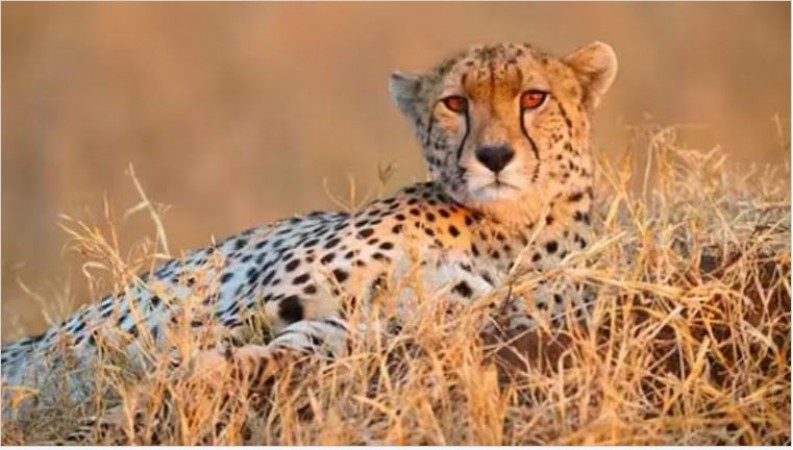
The recent series of cheetah fatalities in Madhya Pradesh's Kuno National Park (KNP) has triggered a discussion among wildlife experts regarding the handling of these African felines. In light of these unfortunate incidents, experts are calling for the involvement of experienced veterinarians to ensure better care for these magnificent animals.
The most recent case involved the demise of Tejas, a male cheetah, on Tuesday within KNP. An autopsy report indicated that Tejas was "internally weak" and failed to recover from the "traumatic shock" inflicted during a violent altercation with a female cheetah, as confirmed by a forest official.
Tejas's death marks another setback for the central government's cheetah reintroduction program, which was launched with great enthusiasm in September of last year. Since March, a total of seven felines, including three cubs born to Namibian cheetah 'Jwala,' have succumbed to unfortunate circumstances at KNP.
Y. V. Jhala, former dean and senior professor at the Wildlife Institute of India (WII) in Dehradun, expressed his views on the matter. He noted, "While cheetah deaths were anticipated in this reintroduction program, what surprises me more is that these mortalities occurred within the enclosed bomas where such incidents were least expected. Cheetahs were anticipated to face risks after their release from the safe enclosures, not within them."
Jhala further added that the female cheetah's attack on and subsequent killing of a male cheetah is an unprecedented occurrence within the cheetah's range. It is particularly surprising considering that this female cheetah was hand-reared and was in the process of acquiring hunting skills. Jhala remarked that the deaths were expected under free-ranging conditions due to conflicts with leopards, prey, and human causes. However, none of the deaths occurred in the KNP's free-range area, which demonstrates commendable management practices.
The demise of three cubs "in captivity" also raises concerns and questions the adequacy of their care. Jhala argued that if the cubs were malnourished, they should have been provided with supplements to ensure their health. He referred to these deaths as a "significant loss" for the reintroduction program and a valuable learning experience.
According to the expert, the cheetah deaths at Kuno do not jeopardize the success of the overall project. What is urgently required is the preparedness of additional sites for cheetah release. Jhala suggested a minimum of three to five sites similar to Kuno, which necessitates proper budget allocation by the central government.
A retired dean from the Nanaji Deshmukh Veterinary Science University in Jabalpur expressed concern over the seven cheetah deaths within a span of four months. While acknowledging that mortalities are expected during reintroduction programs, he emphasized the importance of involving experienced veterinarians in the team managing the cheetahs for the program's success.
Another retired professor from the same university, speaking anonymously, highlighted the challenges faced by animals translocated from different continents, including habitat, food, and weather adjustments. Additionally, he noted that animals tranquilized multiple times for capture experience internal hormonal changes that can weaken them. According to him, the survival rate for such captured wild animals, like deer, is only 20-30 percent.
The expert emphasized the significance of timely reporting of any sickness or injuries resulting from conflicts or other causes to improve the chances of survival for the animals. He recommended the inclusion of more experienced veterinarians in the team responsible for cheetah management to enhance the effectiveness of the reintroduction project.
Wildlife activist Ajay Dubey from Bhopal also urged Madhya Pradesh Chief Minister Shivraj Singh Chouhan to bring changes to the cheetah management team by deploying trained wildlife officers at the emergency level for improved outcomes.
The total count of cheetahs at KNP has now decreased to 17, with 20 individuals translocated from Namibia and South Africa and four cubs born within the park.